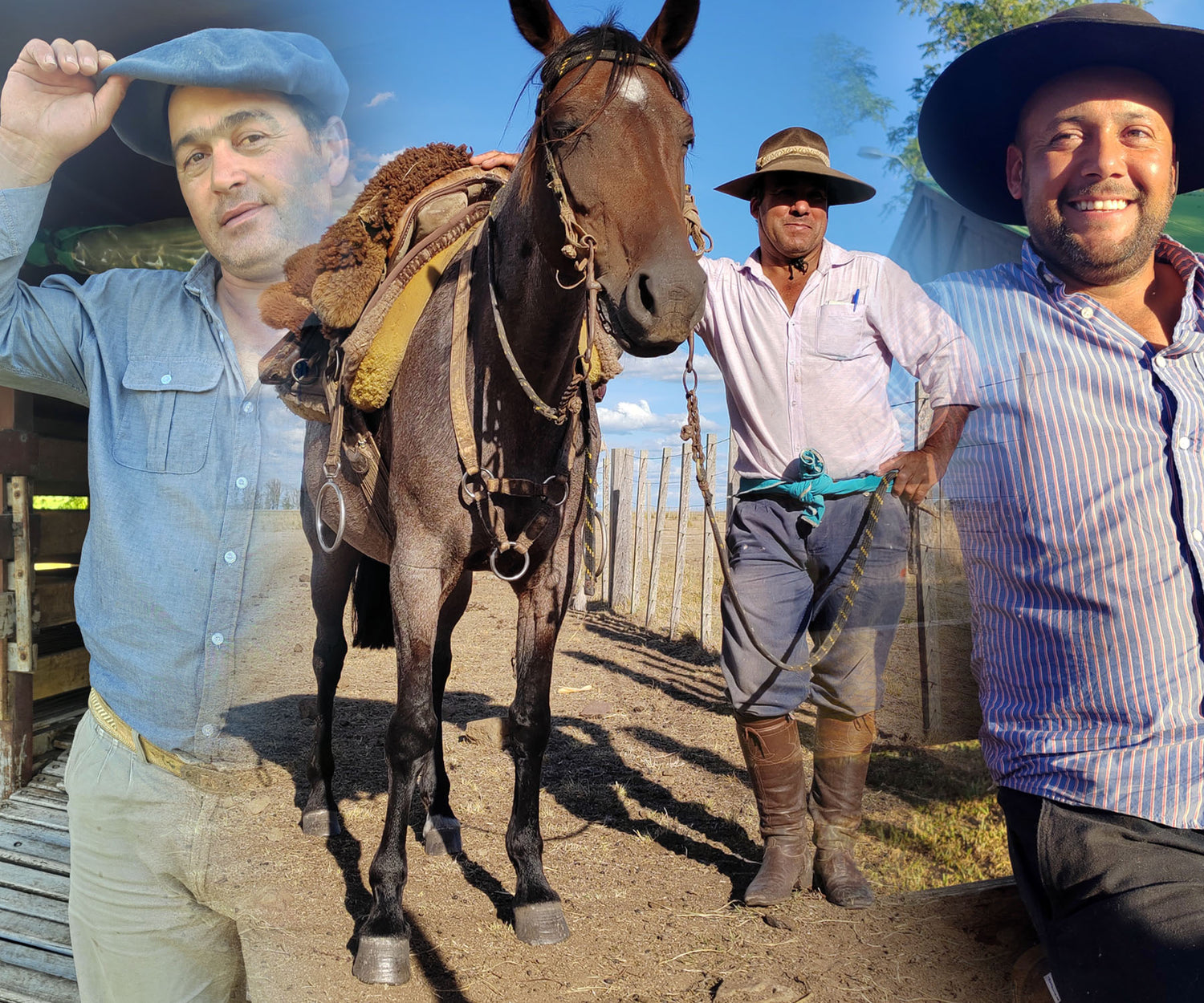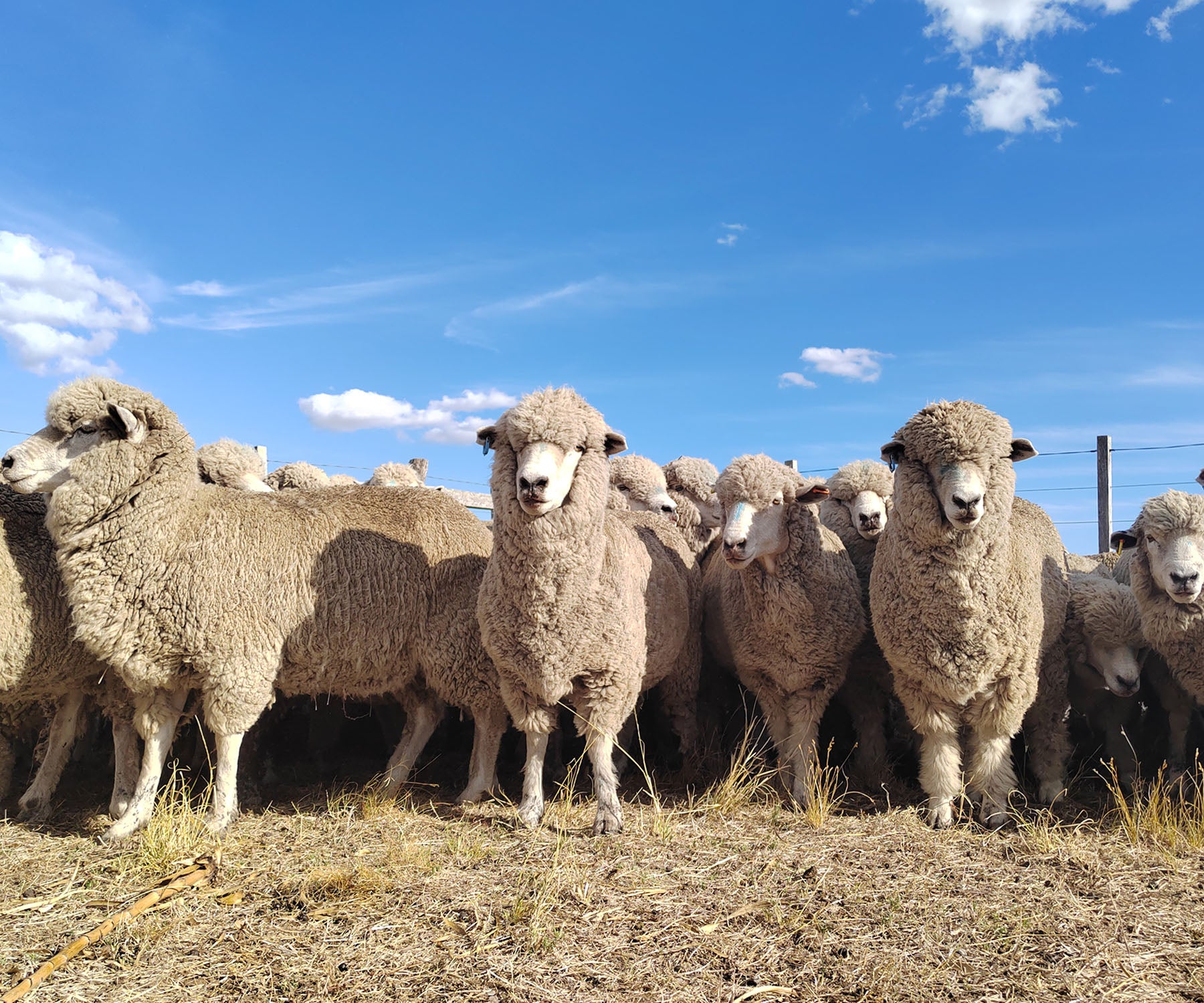Life-feeling socks are on the side of workers' rights, taking care of their well-being.
Sukkamestarit is the world's first, and so far only, sock factory to use only NATIVA-certified merino wool in its products. NATIVA certification guarantees a production process that respects nature, animals and people in all parts of the chain.
How does NATIVA affect the daily lives of people involved in wool production?
"When the workers are well, the animals are well."
It all starts with well-being. It's about their lives being happy, prosperous and working conditions being good. Frustrated and unwell people easily take out their own bad feelings on animals, which shows up as abuse and neglect.
In Uruguay, workers have rights under the law. Uruguay has been a member of the International Labour Organisation (ILO) since its creation in 1919. The ILO's mission is to promote social justice and internationally recognised human and labour rights and their implementation.
Uruguay has 105 conventions in different sectors, giving workers the right to organise and belong to a union. Uruguay has also set minimum ages for workers to prevent child labour.
Although Uruguay has a good level of workers' rights, NATIVA further specifies the issues related to workers' welfare and rights. (NATIVA merino wool is also produced in countries such as Argentina, where the legislation is not as strict.)
NATIVA's basic principles on human rights
Human rights at work are universal, where every person around the world deserves to be treated equally and with respect for human dignity in their work.
Fundamental rights include the right to:
- Freedom of expression,
- privacy,
- health,
- life,
- freedom and
- security, and an adequate standard of living.
In NATIVA, all actors are committed to respecting human rights and protecting their workers from human rights violations, such as forced labour or child labour.
NATIVA opposes corruption in all its forms, including extortion and bribery.
Living and working conditions on the farm
At La Magdalena farm, workers often live on the farm at least from Monday to Friday. Some families live elsewhere, others live on the farm permanently. It is also possible to live on the farm with the family.
Workers are offered a place to stay on behalf of the farm:
- Food
- Accommodation
- Free health care
- Work clothes (renewed twice a year)
- Training in ethical and ecological ways of working.
If the family lives on the farm and has school-age children, they will also be offered a school bus to a school about 20 km away.
The well-being of the workers is perceived as a very important issue, with good and sufficient, nutritious food being one of the key factors on the farm.
Workers have their own accommodation, which must have water, electricity and heating, as well as adequate toilet and shower facilities, and enough space, taking into account, for example, the size of the family living on the farm, to allow comfortable living. The employer shall ensure that water suitable for drinking is available and accessible at all times. It is also important that clean facilities are provided for the storage of food (e.g. there must be separate cold storage facilities for animal medicines).
All employees have access to free health care. With NATIVA, farms will carry out a risk assessment listing all possible factors that could endanger the health or safety of workers. Workers are also trained in safety factors and the use of equipment and tools to avoid accidents at work.
Working on the farm in a variety of jobs, La Magdalena has ensured that each worker has the appropriate tools and clothing;
- shoes
- trousers
- shirt
- cap
- leather boots
- knife
For a gaucho herding sheep, one of the most important tools of the trade is his teammate, the horse. The horse must be in good condition and well nourished in order to be able to work as a gaucho's partner. There are about five horses per gaucho to ensure that the horses also get sufficient rest and recovery.







